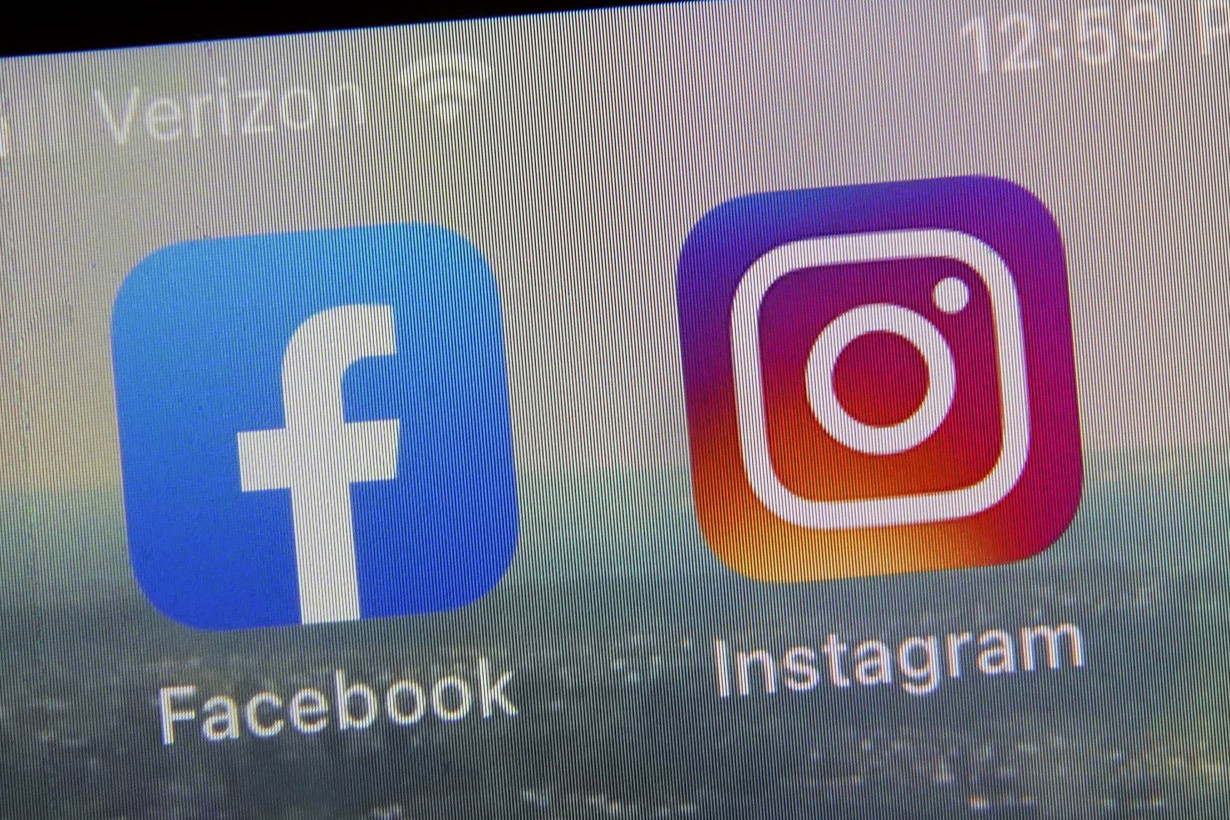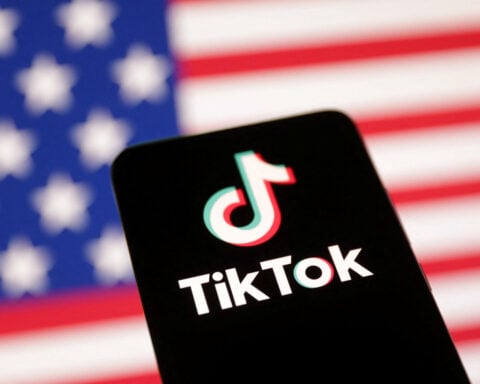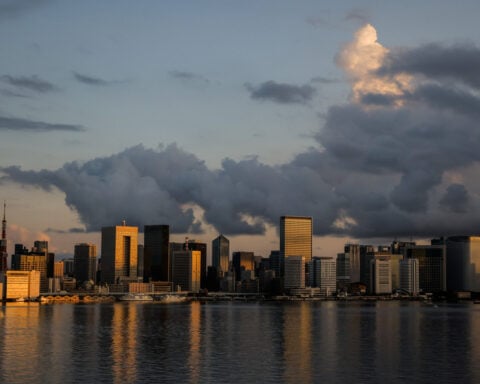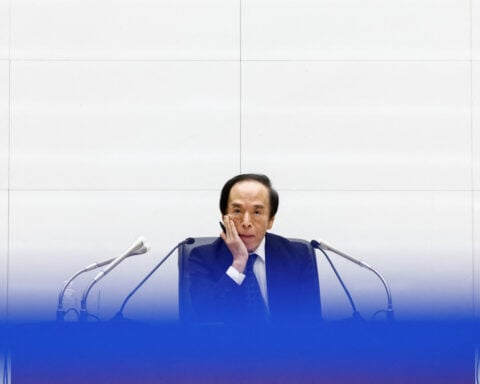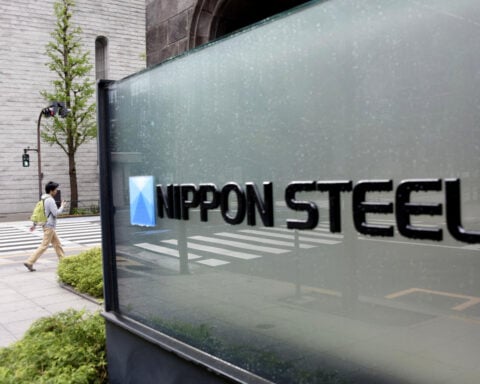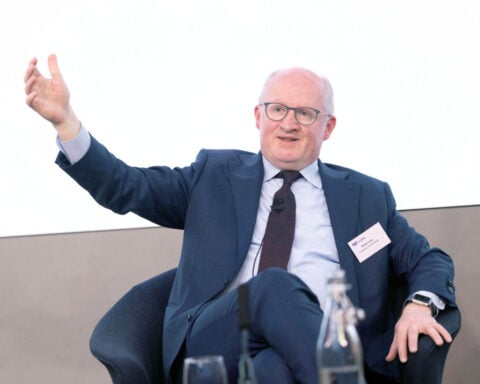LONDON (AP) — British lawmakers have approved an ambitious but controversial new internet safety law with wide-ranging powers to crack down on digital and social media companies like TikTok, Google, and Facebook and Instagram parent Meta.
The government says the online safety bill passed this week will make Britain the safest place in the world to be online. But digital rights groups say it threatens online privacy and freedom of speech.
The new law is the U.K.’s contribution to efforts in Europe and elsewhere to clamp down on the freewheeling tech industry dominated by U.S. companies. The European Union has its Digital Services Act, which took effect last month with similar provisions aimed at cleaning up social media for users in the 27-nation bloc.
Here's a closer look at Britain's law:
The sprawling piece of legislation has been in the works since 2021.
The new law requires social media platforms to take down illegal content, including child sexual abuse, hate speech and terrorism, revenge porn and posts promoting self-harm. They also will have to stop such content from appearing in the first place and give users more controls, including blocking anonymous trolls.
The government says the law takes a “zero tolerance” approach to protecting kids by making platforms legally responsible for their online safety. Platforms will be required to stop children from accessing content that, while not illegal, could be harmful or not age-appropriate, including porn, bullying or, for example, glorifying eating disorders or providing instructions for suicide.
Social media platforms will be legally required to verify that users are old enough, typically 13, and porn websites will have to make sure users are 18.
The bill criminalizes some online activity, such as cyberflashing, which is sending someone unwanted explicit images.
The law applies to any internet company, no matter where it’s based as long as a U.K. user can access its services. Companies that don't fall in line face fines of up to 18 million pounds ($22 million) or 10% of annual global sales, whichever is greater.
Senior managers at tech companies also face criminal prosecution and prison time if they fail to answer information requests from U.K. regulators. They'll also be held criminally liable if their company fails to comply with regulators' notices about child sex abuse and exploitation.
Ofcom, the U.K. communications regulator, will enforce the law. It will focus first on illegal content as the government takes a “phased approach” to bring it into force.
Beyond that, it’s unclear how the law will be enforced because details haven’t been provided.
Digital rights groups say the law's provisions threaten to undermine online freedoms.
The U.K.-based Open Rights Group and the Electronic Frontier Foundation in the U.S. said that if tech companies have to ensure content is not harmful for children, they could end up being forced to choose between sanitizing their platforms or making users verify their ages by uploading official ID or using privacy-intrusive face scans to estimate how old they are.
The law also sets up a clash between the British government and tech companies over encryption technology. It gives regulators the power to require encrypted messaging services to install “accredited technology" to scan encrypted messages for terrorist or child sex abuse content.
Experts say that would provide a backdoor for private communications that ends up making everyone less safe.
Meta said last month that it plans to start adding end-to-end encryption to all Messenger chats by default by the end of year. But the U.K. government called on the company not to do so without measures to protect children from sex abuse and exploitation.

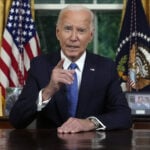 Biden promised to turn the page on Trump. Now he's being replaced by him
Biden promised to turn the page on Trump. Now he's being replaced by him
 Firefighters prepare for increasing gusts following brief reprieve for LA area
Firefighters prepare for increasing gusts following brief reprieve for LA area
 John Ratcliffe, tapped by Trump to lead the CIA, will face questioning in the Senate
John Ratcliffe, tapped by Trump to lead the CIA, will face questioning in the Senate
 Nippon Steel wants to work with Trump administration on US Steel deal, Mori tells WSJ
Nippon Steel wants to work with Trump administration on US Steel deal, Mori tells WSJ
 After cable damage, Taiwan to step up surveillance of flag of convenience ships
After cable damage, Taiwan to step up surveillance of flag of convenience ships
 BOJ will raise rates if economy, price conditions continue to improve, Ueda says
BOJ will raise rates if economy, price conditions continue to improve, Ueda says
 Manatees congregate in warm waters near power plants as US winter storms graze Florida
Manatees congregate in warm waters near power plants as US winter storms graze Florida
 AAPI adults prioritize immigration, but split on mass deportations: AP-NORC/AAPI Data poll
AAPI adults prioritize immigration, but split on mass deportations: AP-NORC/AAPI Data poll
 As Los Angeles burns, Hollywood's Oscar season turns into a pledge drive
As Los Angeles burns, Hollywood's Oscar season turns into a pledge drive
 As fires ravage Los Angeles, Tiger Woods isn't sure what will happen with Riviera tournament
As fires ravage Los Angeles, Tiger Woods isn't sure what will happen with Riviera tournament
 Antetokounmpo gets 50th career triple-double as Bucks win 130-115 to end Kings' 7-game win streak
Antetokounmpo gets 50th career triple-double as Bucks win 130-115 to end Kings' 7-game win streak
